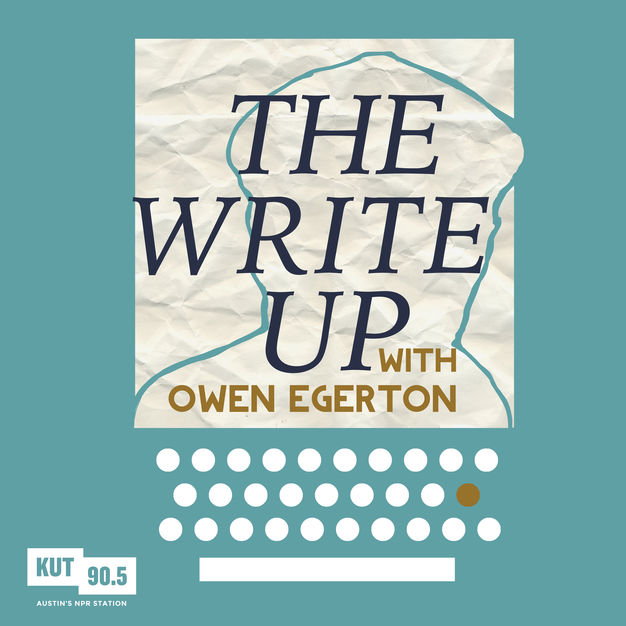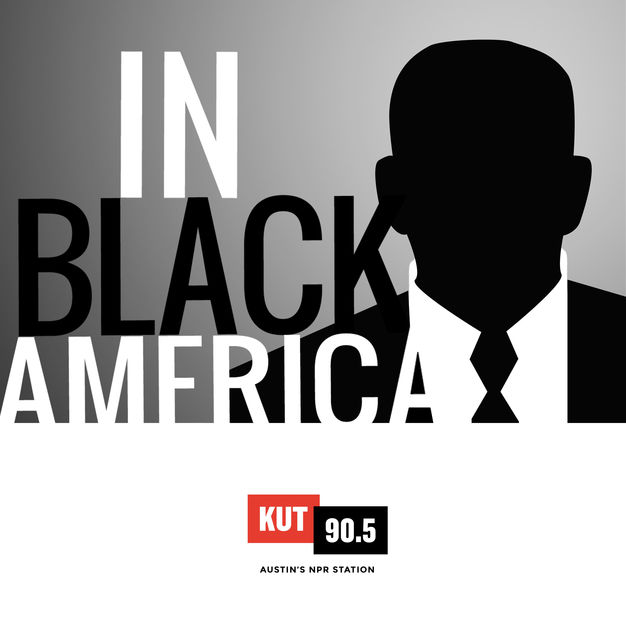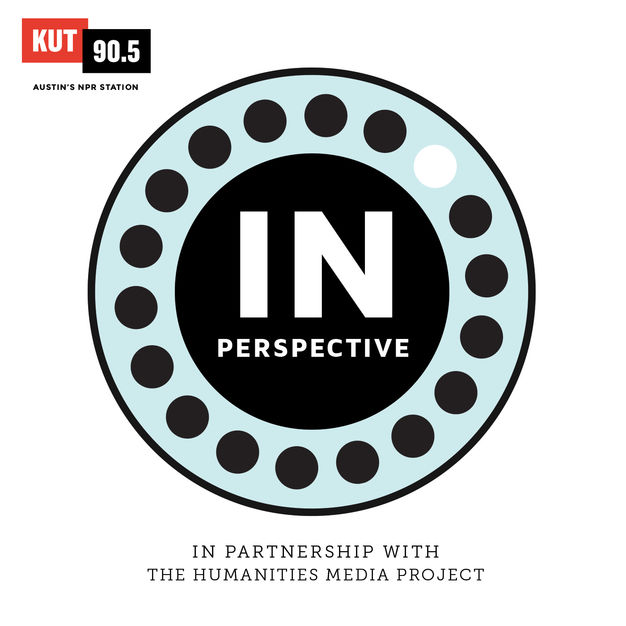
KUT » The Write Up
Owen Egerton
What does it mean to be a writer? What is the creative process? How do you publish your work? What inspires you to write? When did you become a writer? Each month screenwriter, novelist and performer Owen Egerton sits down with all sorts of writers—from playwrights to poets—to talk about their lives and careers.
- 44 minutes 44 secondsScott Westerfeld
Scott Westerfeld is a bestselling author of books for both children and adults best known for his young adult series Uglies and Leviathan. While on tour with his new graphic novel Spill Zone, Westerfeld spoke with The Write Up host Owen Egerton about monsters, collaboration, teenagers and storytelling.
Westerfeld’s recent projects have embraced visual storytelling. From the stunning illustrations in the Leviathan series to the Uglies graphic novel adaptations to Spill Zone, Westerfeld says he’s learned lessons not only about writing for comics and other visual media, but about writing prose as well.
“I’ve learned that books breathe better when you vary scale or light between scenes,” he says. “And while, in a prose novel, your audience might not see the crowd or the space you’ve written around your characters, if you do it right they will feel it anyway.”
Spill Zone, is the first installment in a new series with artist Alex Puvilland. The graphic novel is set three years after a mysterious event destroys the town of Poughkeepsie and follows Addison and her little sister, Lexa. The narrative revolves around Addison’s secret: that she sneaks into the otherworldly Spill Zone to take photos to support herself and her sister. Westerfeld says he’s always been drawn to writing characters shrouded in secrecy.
“I love characters with secrets because there’s always something that can go wrong for them,” he says. “[There’s] always something churning in their head, and it allies the reader with the person with the secret because we’re in there with them. We’re keeping the secret with them.”
The post Scott Westerfeld appeared first on KUT & KUTX Studios -- Podcasts.
2 July 2017, 10:17 pm - 51 minutes 13 secondsDan Chaon
Dan Chaon is the author of three short story collections. His short fiction has received multiple awards including publication in the Pushcart Prize Anthology, Best American Short Stories, The O. Henry Prize stories.
Chaon’s first novel Await Your Reply was a national bestseller, and his second novel Among the Missing was a finalist for the National Book award. In his new novel, Ill Will, Chaon explores mystery, death, grief, and the personal narratives we cling to. Dan came by by KUT’s studios in Austin to talk to Owen about themes,
Dan came by by KUT’s studios in Austin to talk to Owen about themes, craft and shining a light into the dark corners of the human mind.
As Owen points out, many novels are called “haunting” but Ill Will can’t be fully described without using the word. Chaon tells the story of two crimes: the death of protagonist Dustin Tillman’s parents when he was a child and the current mysterious deaths of several college students around town. Dustin’s adopted brother Rusty was convicted of their parent’s murder, but new evidence has overturned this conviction, and Dustin must reassess his history with his brother as he also investigates the local deaths for a connection he is sure must exist. Ill Will is unsettling, unconventional, and unapologetically full of dark humor.
Talking about the genesis of this nuanced novel, Chaon recalls hearing a story about several college kids drowning in the river of a college campus and the surrounding urban legends that there must be some sort of connection between them. This idea becomes a central theme in this book: the oh-so-very-human determination to create meaning even or maybe especially in the face of tragedy. When our ideas of our story are challenged or contradicted, things can unravel quickly.
To explore these ideas Dan says he makes sure he has a touchstone to each character, and that this is especially important in a novel like Ill Will where there are so many voices and sometimes contradictions to articulate. “You hear authors say ‘the character took on a life of their own’ and it sounds silly but there’s truth to it”. Getting into the mental place to do that, he explained, is more like the imaginative play of childhood or musicians jamming together.
Dan also discusses what it was like to explore things that, while not completely biographical, had deep roots in his own life. His own experiences as a widower and as a parent to teenage boys both play a role in Ill Will. Just like with horror films, Dan and Owen discuss the power of shining a light into the dark corners of our minds and the relief and empathy that comes from imagining the worst that can happen:
“If I’m not shedding a few tears over something by the time I’m finished, I haven’t done my job”.
-by Felix Morgan
The post Dan Chaon appeared first on KUT & KUTX Studios -- Podcasts.
24 May 2017, 10:08 pm - 1 hour 29 secondsThe Write Up: George Saunders
In this episode of The Write Up, Owen talks to George Saunders about craft, ecstatic empathy, and the afterlife in his new novel Lincoln in the Bardo.
George Saunders is an award winning and New York Times bestselling author of essays, short stories, novellas, and children’s books. His writing has appeared in The New Yorker, The Guardian, GQ, Harper’s, and McSweeny’s. His vast literary achievements include multiple National Magazine Awards, A McArthur and a Guggenheim Fellowship, a Bram Stoker Award, and a National Book Award.
In this interview during the Texas leg of his book tour, Saunders talks about his ever-present mental editor that drives him to refine his work. When referring to his recent essay on process, he talks about the connection he has to his readers.
In his constant drive to sound “less lame” he builds a faith-based relationship with his imagined readers. He promises them his best work and trusts that they will unfold themselves, tap into their empathy, and join him in his story.
The idea for this novel came some twenty years ago when he heard a story about Lincoln’s grief over losing his son. During his presidency, it was said that Lincoln would frequently venture into the graveyard and into the crypt where his son’s body was to hold him. From this anecdote he could see the outline of a story that would, eventually, become Lincoln in The Bardo.
Saunders was well known as a short story writer for some time before this new novel. When speaking about writing a longer work, he says he was at first unsure. But his skills in crafting short fiction translated into novel writing more easily than he originally imagined. Saunders described it as if he had spent years building small tents and then a large tent arrived. The material was greater and more complex but it was all based on the same principles.
In writing a larger story he found that not only that not only that he could combine several small structures to make a large one, but that there was room for new beauty and complexity in the places where the smaller pieces came together.
Saunders is well known for his essays, often going out of his way to put himself into situations with people he might not run across otherwise. He’s covered Trump rallies and once lived in a homeless encampment, which might have directly affected his most recent novel.
Saunders noticed that all the people living there had a very specific story. Always some variation on the theme of ‘I’m not supposed to be here’. Seeing how circumstance and tragedy could reduce personal narratives to a narrow monologue directly influenced the characters in his novel. The residents of the graveyard are ghosts stuck in an in-between place who tell their stories. Their voices illuminate pockets of experience and lives lived that weave around the main story.
Saunders speaks simply and elegantly, both in this interview, and in his work. It’s impossible to not be inspired as he talks about topics ranging from ethics and spirituality to one of his characters’ supernaturally persistent erection.
Lincoln in The Bardo is Saunders’ first novel and, according to Owen, is “the best text about ethics and empathy, ever, including all religious texts and all the classics.”
The post The Write Up: George Saunders appeared first on KUT & KUTX Studios -- Podcasts.
25 April 2017, 7:16 pm - 49 minutes 3 secondsThe Write Up: Juliana Barbassa
In this episode of The Write Up, we talk with prizewinning journalist and nonfiction writer Juliana Barbassa about her book Dancing with the Devil in the City of God: Rio de Janeiro on the Brink depicting the beauty, crime, pressures, and violent paradoxes shaping Brazil’s most vibrant city.
Juliana Barbassa has lived and written all over the world. Born in Brazil, she has lived in Iraq, Spain, Malta, Libya, France, and the United States. As a journalist, her ability to dive in and find the human face in the most desperate of stories won her acclaim including the Katie Journalism Award, the emerging journalist of the year by the U.S.-based National Association of Hispanic Journalists, and the John L. Dougherty award by the Associated Press Managing Editors.
In 2003, Barbassa joined the Associated Press and returned to her home country of Brazil to be the Rio de Janeiro correspondent. There she found a city in the midst of massive growth and explosive change. Poverty and crime still plagued much of the city, but Rio was also enjoying an influx of new business and international attention. This attention increased when Rio won the hosting honors of the 2014 World Cup and the 2016 Olympic Games. Rio now feels the pressure to grow into the ideal Brazilian city, at least in appearance, at an accelerated pace.
Barbassa’s book is not one of dry economics or global public relations. Instead Barbassa shares the narrative of a city and its people in the midst of radical transformation. She zooms in on the people and places that give Rio its complex character. We meet criminals and prostitutes, shopkeepers and mothers, police officers and children. Barbassa’s journalistic instincts drive her into heart of the story, often putting herself in mortal danger as police stand off with drug lords or raze impoverished neighborhoods to the ground.
Her own story of returning to Brazil and experiencing the tension pulling at Rio firsthand gives the book a memoiric thread. Her intense feelings for the city serve to enliven her excellent research.
On the Write Up we discuss her thirst for stories as a journalist, her willingness to investigate the darker narratives, and her struggle to care for herself, both physically and psychologically, while reporting on violence and brutality.
She also gives us insight as to how her life and career led her all over the world and eventually back to Brazil. And how her growing desire to explore the strange contradictions of Rio led to writing this book.
When talking with Barbassa, you sense the conflicting feelings she has for Rio. There’s a real love as she describes the smells and sights, and unflinching honesty as she chronicles the hardships of the disenfranchised city. She highlights the extremes of this incredible city where natural beauty and corruption both thrive. It is her ability to love the city as a local while also maintaining the critical distance of an investigator that gives this book such depth.
The post The Write Up: Juliana Barbassa appeared first on KUT & KUTX Studios -- Podcasts.
24 May 2016, 4:03 pm - 56 minutes 42 secondsAmelia Gray
I’ve long been a fan of the beautifully dark and bitingly funny fiction of Amelia Gray. Her short story collections AM/PM, Museum of the Weird, and most recently Gutshot rank among my favorite books to pick up for a quick, smiling nightmare.
Her novel Threats digs deeply into grief and melancholy, so deeply that the pages seem soaked in an unstable sadness, a madness that runs through the characters, the setting, and the prose itself. As NPR described it, “Amelia Gray’s psychological thriller takes us to the brink between reality and delusion.”
The dream logic and expansive bizarreness of Amelia Gray’s fiction can have a reader gasp and laugh in the same shudder. Compassion and outlandish cruelty hold hands, and it’s the combination of these opposing elements that make Gray’s work such a delight to read. We squirm, we laugh, we turn the page.
Like Kelly Link and Manuel Gonzales, Gray is part of a modern tradition that seeks to re-mystify the world. The inexplicable becomes the norm. But her writing is in no way escapism. Magic and monsters can appear, but more frightening still are the grounded-in-reality lovers and mothers.
Gray has also been compared to David Lynch and even body-horror filmmaker David Cronenberg. She dips into horror, but it’s a stranger, more nerve-tickling horror than you’d expect from the establishment of the genre.
To read Gray is to risk. She takes readers to dark, honest places. And like a nightmare, we may dispute the logic, but the emotion and terror are inescapable. Her stories and essays has appeared in The New Yorker, The New York Times, VICE, and The Wall Street Journal.
Gray came to the KUT studios while visiting Austin from her home in Los Angeles. We chatted craft, risk, and the joys of writing. We talk about her writing routine and how she mines her own fears and desire to inspire her fiction. We also trace her career and how she sees herself in the current literary scene.
It’s always a treat to talk with Amelia Gray. Her imagination, wit, and insight ensure any conversation will shine. And, like her stories, humor and darkness weave through all her words.
-Owen Egerton
The post Amelia Gray appeared first on KUT & KUTX Studios -- Podcasts.
21 March 2016, 9:00 pm - 38 minutes 27 secondsC. Robert Cargill Live at SXSW 2016
Novelist, screenwriter, critic and slam poet C. Robert Cargill sits down with host Owen Egerton at SXSW 2016 to talk about coming up in Austin, the history of scary movies, and advising on the set of Dr. Strange.
The post C. Robert Cargill Live at SXSW 2016 appeared first on KUT & KUTX Studios -- Podcasts.
21 March 2016, 7:00 pm - 1 hour 5 minutesKirk Lynn
On this edition of The Write Up we chat with novelist, playwright, and professor Kirk Lynn about the craft of writing, the adventure of theater, and the deep desire to abandon society and escape into the wild. We also discuss his debut novel Rules for Werewolves.
Lynn began writing prose in college, but found the companionship of his desk and typewriter unsatisfying and so he took a chance on theater. It was on the stage that he found his passion for the human voice. Along with six friends, Lynn founded Austin’s Rude Mechanicals , now called the Rude Mechs. For nearly twenty years this growing company has produced some of the more daring and critically acclaimed plays to come out of Texas, a number of them penned by Lynn including Stop Hitting Yourself and Lipstick Traces: A Secret History of the 20th Century.
Lynn has a gift for voice. Whether he’s writing from the view point of a founding father, a new mother, or a runaway teenager, Kirk inhabits a voice to such depth that we forget the writer and engage the character. Rules for Werewolves is a chorus of voices narrating the struggles of a group of young people attempting to create an mini-utopia in the uninhabited houses of American suburbia. Lynn incorporates chapters of pure dialogue, first person point of view, and poetic inner monologues to trace the compelling story of the societal marginals.
We dive into what drives Lynn as a writer and the disciplines that shape his craft. We also talk about the path his career has taken since his early dreams of writing. We discuss his marriage to poet Carrie Fountain and how becoming parents has influenced both their work.
Lynn is currently Head of Playwriting and Directing in the Department of Theatre and Drama at the University of Texas. We talk about Lynn’s approach to teaching and the strange sensation of standing before a classroom of students as a presumed “expert.”
Years ago Lynn gave up alcohol. The experience has impacted how he approaches life and writing. He talks about drinking and sobriety with humor and insight.
Sitting with Kirk Lynn is a thrill. His energy and wit seem endless. Whether talking about Jack Kerouac, parenting, or public nudity, it’s always a pleasure to hear from this beloved Austin writer.
-Owen Egerton
The post Kirk Lynn appeared first on KUT & KUTX Studios -- Podcasts.
25 January 2016, 7:10 pm - 40 minutes 59 secondsAda Calhoun
Writer Ada Calhoun discusses her new book, “St. Marks Is Dead: The Many Lives of America’s Hippest Street,” with host Owen Egerton.
The post Ada Calhoun appeared first on KUT & KUTX Studios -- Podcasts.
17 November 2015, 9:00 pm - 59 minutes 34 secondsDebra Monroe
Debra Monroe
Debra Monroe is an award winning author of six books and acclaimed university professor. But she was, in her own words, “ raised to be a farmer’s wife, a shopkeeper’s wife, a telephone man’s wife.”
In her most recent memoir, My Unsentimental Education, Monroe chronicles her journey from the backstreet bars and the presumed limited opportunities of her small Wisconsin hometown to a seat in the ivory tower. Along the way she battles the discouraging voices of her parents, her professors, and a series of poorly chosen lovers. With her passion for literature and her undefeatable spirit, Monroe not only reaches her goals as a writer and an academic, but also achieves a hard won confidence. The book is a beautiful and often hilarious chronicle of one woman’s battle to be exactly who she wants to be.
Whether trying LSD for the first time, unintentionally accepting a job at a pornographic movie theater, or discussing her love life with religiously conservative neighbors, Monroe manages to move her life and career forward. With a wit that helps ease the hurt, we travel with Monroe through heartbreaking relationships with every sort of wrong man. She makes her way through marriages and romances that quickly announce themselves as mistakes.
Men fear her ambitions, are intimidated by her intellect, or simply have no desire to move as she rockets forward. As Monroe finds her way, she also finds herself. Her story charts the difficult task of leaving behind one’s socially assigned identities to find the authentic self. My Unsentimental Education is a celebration of misadventures, surprises, and powering forward against all odds.
This Monroe’s second memoir. Her first, On the Outskirts of Normal, came out in 2010 and traced her experiences adopting a black child while living in a small Texas town. Monroe is also the author of two novels and two collections of short stories. Her first collection, The Source of Trouble, won the Flannery O’Conner Award for Fiction in 1990 and launched her into the national literary scene. From there she wrote a second collection of stories, A Wild, Cold State, in 1995 and the novels Newfangled in 1998 and Shambles in 2004.
Monroe has often been praised for her honest portrayal of the darker corners of American life. She doesn’t back away from images of poverty, crime, and abuse. Her writing is, as the Boston Globe describes it, “fine and funky, marbled with warmth and romantic confusion, but not a hint of sentimentality.” She’s known for using humor to highlight the humanity of her characters.
A conversation with Monroe is a true delight rich with humor and insight. On this episode of the Write Up, we talk about the different challenges of writing memoirs and novels, the rewards of teaching students in the Texas State University MFA program, and the importance of discovering who one really is.
The post Debra Monroe appeared first on KUT & KUTX Studios -- Podcasts.
17 October 2015, 8:00 pm - 1 hour 25 secondsSarah Hepola
Sarah Hepola’s new memoir, Blackout: Remembering Things I Drank to Forget, chronicles her addiction to alcohol with brutal honesty and brilliant humor. The book is gaining critical acclaim from reviewers in The New York Times, The Washington Post, LA Times, and Kirkus Reviews. Entertainment Weekly observed, “It’s hard to think of another memoir that burrows inside an addict’s brain like this one does.”
Blackout was named one of Amazon.com’s Best Books of June 2015, People Magazine’s Best Books of the Summer, and won a spot on the New York Times Best Sellers List.
Hepola recently joined us on The Write Up to discuss the memoir. We also chat about her work as an editor at Salon and as a freelance writer, and the complicated ways alcohol affected her writing and life.
Hepola cut her literary teeth as a writer for the Austin Chronicle in the late nineties and early 2000s. She made a national name for herself as a cultural journalist and personal essayist with Slate, The New York Times, and The Morning News online magazine. Her brand of red-hot wit and self-deprecating honesty earned her admirers and writing jobs. But as her career slowly grew, so did her dependence on alcohol.
From the backyard parties of Austin to basement bars of New York City and the sidewalk cafes of Paris, Hepola tracks her drinking bouts and the blackouts that followed. Many mornings she woke up alone with a cloudy head, mysterious bruises, and black space where the last several hours should have been. On more terrifying occasions, Hepola woke up in bed with someone she didn’t recognize.
It wasn’t until confronted with crumbling friendships and a stalled career that Hepola took the courageous step of getting sober. Hepola’s memoir does not stop there. She describes the struggle to rebuild her mental and physical health, her return to Texas after years in New York, and her discovery that her writing voice did not depend on an open bottle.
Blackout also touches upon the bizarre and sometimes wonderful experience of online dating, the undulations of adult friendship and the pressures of being a professional woman in the once male-dominated world of journalism.
Hepola speaks of her life and writing with an unmasked candor and humor. Her research and insights also enable her to link her own story to cultural trends in dating, women’s liberation, and America’s obsession with alcohol.
On the podcast, Hepola shares the difficulty of transitioning from personal essays to a book-length memoir, the allure alcohol seems to have for so many writers, and necessity of releasing one’s inner editor while writing a first draft.
Find out more at sarahhepola.com
The post Sarah Hepola appeared first on KUT & KUTX Studios -- Podcasts.
30 July 2015, 8:00 pm - 33 minutes 12 secondsKari Anne Roy
K.A. Holt loves middle grade novels and poetry and has a gift for both.
Her novel Mike Stellar: Nerves of Steel won praise from middle grade readers all over the nation. Her poetry shines in her collection Haiku Mama: Because 17 Syllables is All You Have Time to Read, written under the name Kari Anne Roy, is a collection of haikus hilariously bemoaning the struggles and joys of parenting.
In 2010 Holt combined the two genres and started writing middle grade novels in verse. Her first, Brains for Lunch (A Zombie Novel in Haiku?!), followed the misadventures of a preteen zombie dealing with all the romantic challenges of middle school while also being one of the living dead.
Rhyme Schemer follows a middle school bully with a secret passion for poetry. In her forth coming novel in verse, House Arrest, a young boy journals about his struggles through a year of probation and his younger brother’s health crisis.
Holt’s anti-heroes pop with life (even the undead ones). She depicts the emotional and social pre-teen challenges of her young characters with pitch perfect humor and riveting authenticity. She manages to avoid ever condescending to her readers or artificially endowing her middle grade characters with adult takes on the world. She nails the wildly turbulent thoughts and feelings of a 7th grader – and does it in verse.
Holt has a knack for bringing poetry to surprising places. In 2013 Holt and fellow Austinites Jodi Egerton, Sean Petrie and David Fruchter took a love of vintage typewrites and public poetry and formed Typewriter Rodeo. The group can be found at music concerts, museum openings, and SXSW parties banging out spontaneous poems on old school typewriters.
Holt, again writing as Kari Anne Roy, is also a celebrated blogger known for fearlessly diving into difficult issues ranging from abortion legislation to CPS investigations. Her insights are supported by relentless honesty and a wry wit. More than one entry on her blog www.haikuoftheday.com has gone viral and emerged on the national scene.
It’s a true pleasure to get to sit down with Holt on The Write Up and discuss her craft and career and how she balances daily life, deadlines, and being a mother of three. Join us as we chat about the attraction of writing for a younger audience, her love for underdogs and preteen ne’er-do-wells, and the allure of poetry.
The post Kari Anne Roy appeared first on KUT & KUTX Studios -- Podcasts.
16 June 2015, 6:00 pm - More Episodes? Get the App
Your feedback is valuable to us. Should you encounter any bugs, glitches, lack of functionality or other problems, please email us on [email protected] or join Moon.FM Telegram Group where you can talk directly to the dev team who are happy to answer any queries.
 KUT » ATXplained
KUT » ATXplained
 KUT Weekend
KUT Weekend
 KUT » Views and Brews
KUT » Views and Brews
 KUT » In Black America
KUT » In Black America
 KUT » In Perspective
KUT » In Perspective
 KUT » Higher Ed
KUT » Higher Ed